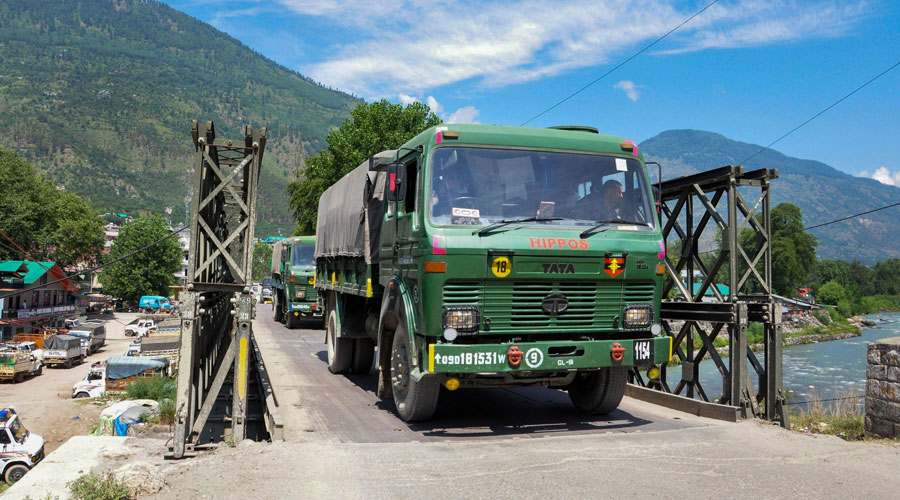Indian soldiers deployed at the Pangong Lake in eastern Ladakh are using loudspeakers and unfurling banners asking Chinese troops to vacate their positions and return to what had been their side of the Line of Actual Control, sources in the security establishment said.
In response, the Chinese People’s Liberation Army troops are also using loudspeakers and banners to tell the Indian soldiers to pull back further from what used to be India-claimed line as a pre-condition for disengagement, the sources said.
“The Indian troops on the ground have started using loudspeakers and banners asking the Chinese to vacate areas inside the India-claimed line and return to their original positions. The PLA soldiers too have been using portable loudspeakers, telling our troops to retreat further as a pre-condition for disengagement,” said an official attached to the Indo-Tibetan Border Police’s intelligence wing.
The ITBP is the first line of defence along the 3,488km India-China border, behind which the army stands.
The official said the Indian banners had the following message written in English and Mandarin on them: “To restore peace go back, you are in Indian territory.”
The Chinese banners bear this message in English and Hindi: “We are in our territory. For peace and tranquillity, India and China must retreat (an) equal distance.”
The official said both sides were also using loudspeakers to deliver the same message.
The ITBP official said: “None of this has worked but it sometimes brings down the simmering tension between the two sides.”
The border standoff had started at the Pangong Lake with a fists-and-stones clash between the two armies on May 5, before it snowballed into a violent face-off on June 15 at Patrolling Point 14 in the Galwan Valley that killed 20 Indian soldiers and caused an unspecified number of Chinese casualties.
The Chinese army has so far shown “no intent” of retreating from encroached positions up to 8km inside the India-claimed line at the Pangong Lake, which is nearly 140km long and 7-8km wide. China used to control two-thirds of the lake but has now laid claim to almost the entire Pangong.
Both sides are said to have taken defensive positions on the slopes at 15,000ft above the sea level after bringing in reinforcements.
Another ITBP official said the Indian and Chinese troops had taken up similar banner-and-loudspeaker drills during earlier face-offs as well, but on those occasions the soldiers had marched back to their respective positions thereafter.
“The ongoing standoff is likely to be a long-drawn process even though diplomatic and military talks are on. The Indian soldiers on the ground are also keeping open the channel of communication through loudspeakers and banners,” the official said.
A military veteran recalled that both sides had used loudspeakers during the 1962 India-China war. “The Chinese troops had used loudspeakers to play songs by Mohammad Rafi and Lata Mangeshkar to keep Indian soldiers in good humour and get them to leave Chinese posts,” he said.
Sources said that this time the PLA had also rushed in additional high-speed boats to the Pangong Lake to strengthen its position, and was patrolling more aggressively. India too has deployed a few boats on the picturesque blue lake to counter them.
“They (the Chinese) are holding on to the Finger 4 ridgeline and controlling the heights where they have deployed both men and machines. They have also fortified bunkers on the lake’s shores and built several posts and observation towers,” a security official attached to the Union home ministry said.










